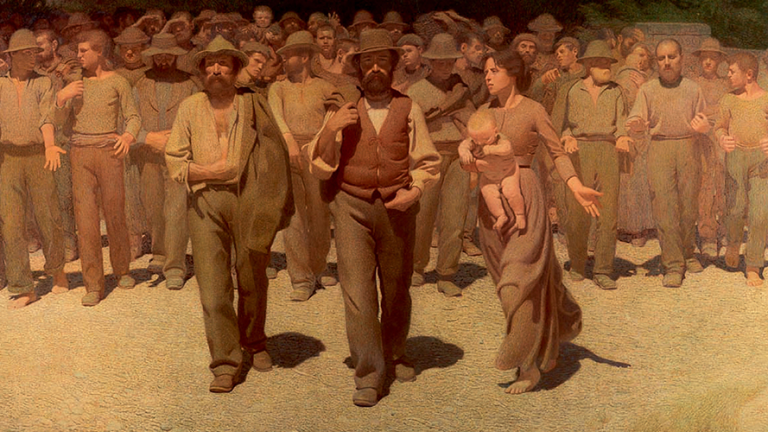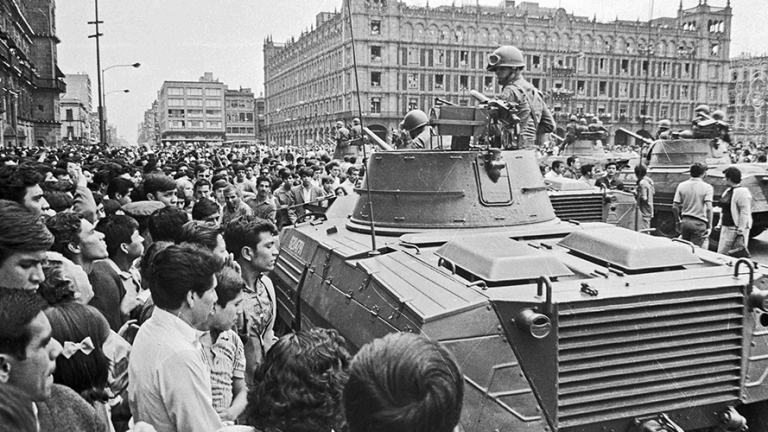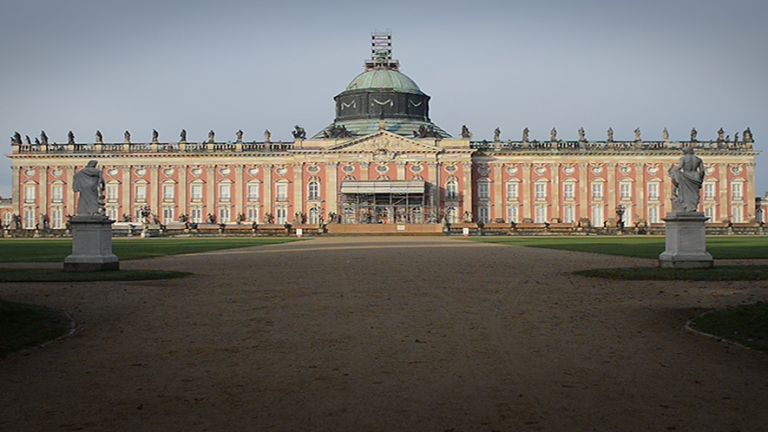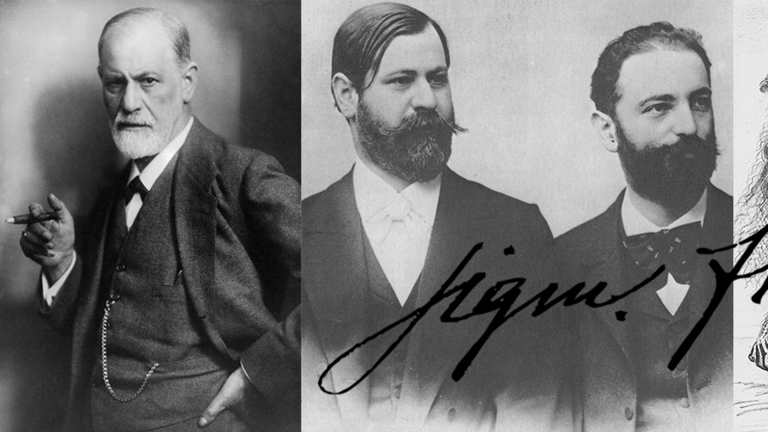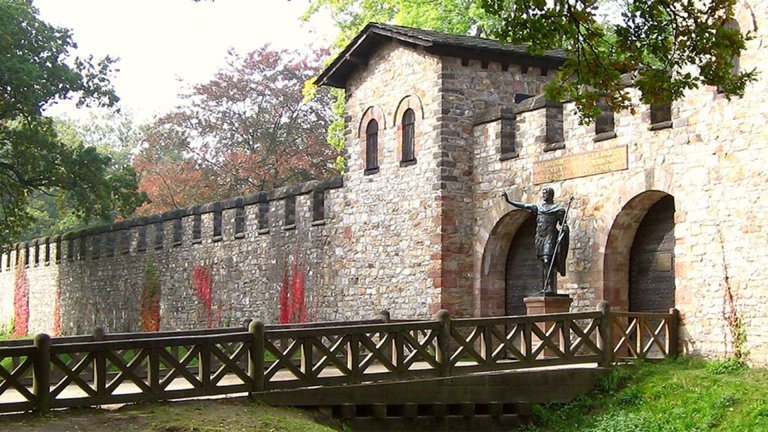Suche:
- # Artistry
- # Biology
- # Chemistry
- # Ecological
- # Economy
- # English
- # Foreign Language
- # Geography
- # German
- # Health
- # History
- # Informatik
- # Latin
- # Mathematics
- # Media Education
- # Music
- # Physics
- # Politics / Civics
- # Preschool
- # Primary School
- # Religion
- # Society
- # Sports
- # Technology
- # Training of Teachers
- # Vocational Education
Labour Movement in Germany
In 1815, after the end of the Napoleonic wars, Europe reinvented itself. The Congress of Vienna created new states and changed a great number of borders. After the devastating war years, now a deceptive peace was reigning and people could focus on normal life again.
Learn moreGeneration of 1968
The protest movements of 1968 were ignited all over the world – the existing order underwent a dramatic upheaval. Students and pupils of the entire world – no matter in which country, which culture – expressed their solidarity. And what they accomplished was great! The revolutions and achievements of this movement have changed the whole world. And it remains doubtful if there will ever be another “1968“!
Learn moreRulers, States, Regimes
About 150 years lie between the creation of these pictures: on the one hand, the absolute ruler of France Louis XIV, who reigned from 1643 to 1715 and on the other hand, George Danton and Maximilien Robespierre, two distinguished representatives of the French Revolution after 1789, who decided the fate of France. What had happened that the leaders of their country had themselves represented in such different ways? Here the radiant, glorious prince, clothed in precious robes, in front of a legendary background – there the plainly dressed men at their desks with pen and ink as attributes of the educated citizen.
Learn moreSigmund Freud I
On 6th May 1856 Sigismund Schlomo Freud was born in Freiberg, a small town in Moravia. His parents, the forty-one year old Jewish wool merchant Kallamon Jacob Freud and Amalia, née Nathansohn, who was 20 years his junior, had seven more children together, and his father had two sons from previous marriages. “My parents were Jews, I have also remained a Jew”, Sigmund Freud later wrote in his autobiography. Quote from Sigmund Freud: “Incidentally, why was it that none of all the pious people ever discovered psycho¬analysis? Why did the world have to wait for a completely godless Jew?”
Learn moreThe Limes
The limes – the northern borderline of the Roman Empire stretched from Britannia to the Black Sea.
Learn moreUrban Development
The film provides an insight into the topic of urban development. In such a process, many factors work together: for example geographic location, economic opportunities and citizens' prosperity.
Learn moreFirst World War
First World War – A European Catastrophe Even though countless armed conflicts had shaken mankind in the course of its history, it was the First World War that surpassed with its 17 million casualties and immense damage anything that had ever been experienced before. DVD 1 tries to investigate the question where to find the causes for the First World War. Starting with the foundation of the German Reich and its foreign policy, the alliance systems are explained. Also the importance of the colonies as raw materials and sales markets are shown. Germany was the economic powerhouse in Europe thus shaking its balance of power. What were the aims of the individual Great Powers? What were the chances when the war broke out in 1914 in view of the balance of power among the alliances? DVD 2 shows the fronts, meanwhile hardened, between the Central Powers and the Allies from 1915-1918. It becomes clearly visible what horrors modern warfare entailed and how radically the role of the individual soldier on the battlefield changed. Together with the extensive additional material the DVD is ideally suited for use in the classroom.
Learn moreDictatorships in the 20th Century II
Nobody could trust his colleagues, his friends, even his own family any more. An entire nation was brutally oppressed, spied out and exposed to any conceivable form of despotism. Until Joseph Stalin died on 5th March 1953, these facts were the bitter reality of the Soviet citizens’ everyday life. This despot used his absolute power to wage war against his own people for decades.
Learn moreDictatorships in the 20th Century III
Today, the Caribbean island state of Cuba is an independent republic. Cuba was first ruled by the Spanish and later by the USA before the island gained its independence under Fidel Castro in the 20th century. He grew up in privileged conditions but already while studying law he engaged in political activity. He fought against the corrupt dictator Batista, who was supported by the USA, and later against the USA itself, and during the “Cold War he is a loyal but dependent ally of the Soviet Union. In 1962, the world is on the brink of an atomic war. As a consequence of the break up of the USSR and the continued embargo by the USA, the island sinks into poverty. Castro remains in power although he encounters more and more resistance in his own country. In 2008, he abdicates due to illness. The didactic DVD “Dictatorships in the 20th Century III – Fidel Castro“ tells the story of the man whose life is inseparably linked to the history of the island of Cuba in the 20th century. Together with the extensive accompanying material the DVD is ideally suited for use in the classroom.
Learn moreDictatorships in the 20th Century IV
Within just a few years, Adolf Hitler succeeds in transforming the young democracy of the Weimar Republic into a dictatorship. With sophisticated propaganda he got millions of German citizens to vote for him. He achieved dictatorship and started the 1st World War – driven by his anti-Semitic ideas and the vision of making Germany the ruler of the world. This film provides information on Hitler as a person. How this Austrian boy with an utterly ordinary childhood, whose dream it was to be a painter one day, grew into the man that turned half the world into piles of rubble.
Learn moreSecond World War I
When, on 1st September 1939, the German Wehrmacht unleashed the Second World War with the attack on Poland, nobody could have visualised what immense suffering and gigantic destruction would descend on mankind during the following six years. More than 57 million people, including almost 27 million Russians, paid for the German quest for world domination with their lives. Incited by populist ideas, almost an entire nation enthusiastically went to “all-out war”, thus plunging the world into the second great disaster of the 20th century. But shouldn’t people have known better considering that the First World War had only just been 21 years before?
Learn more


